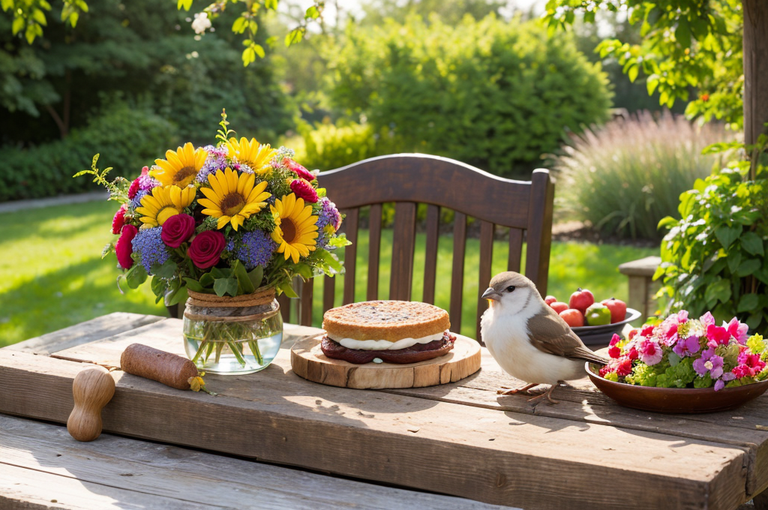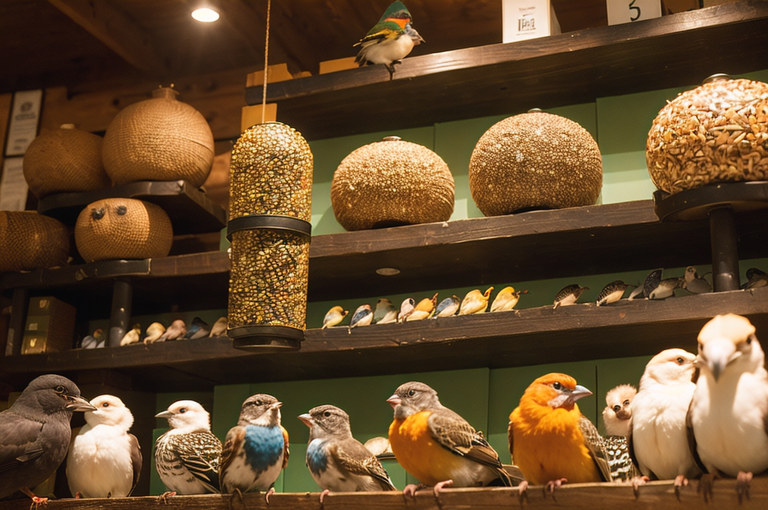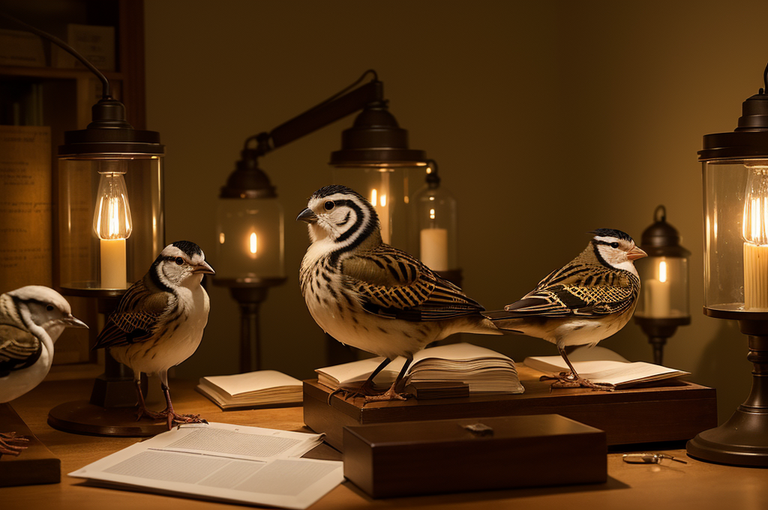Understanding Your Bird's Nutritional Needs for Optimal Health and Longevity

This article explores birds’ varied nutritional needs, common wild bird foods, the importance of gradual diet transition, and My Natural Pet Shop’s high-quality bird food offerings.
Understanding Bird Nutrition
Oh, the unbeatable appeal of the chirping delight we fondly call birds! Akin to us, their dietary requirements vary. Subtle yet significant variations do exist a lesson we draw from our keen observations and studies, extending to the enchanting array of species. We find wisconsin wild birds, each exhibiting their unparalleled charm and distinct nutritional needs.
Importance of Specific Nutrients
In their diet, a meticulous blend of essential nutrients plays vital, unseen roles. It’s not just about satiating hunger, but more about creating a symphony of nutrients within their tiny bodies. Like prebiotics and probiotics enhancing gut health, and Omega 3 fatty acids supporting a glossy plumage and robust immune system. Plus, the array of vitamins and micronutrients necessary for overall health and vitality, all weave together a tale of exceptional nutrition that every bird requires.
Variation in Nutritional Requirements Among Species
Just as a sparrow is not an eagle, their dietary requirements also contrast greatly. Each species paints a unique nutritional canvas. Some need a high protein diet, others require more fruit and nectar, while some are opportunistic. To understand these differences and provide appropriate care, becomes our immense yet heartening responsibility.
Essential Components of Bird Diet
As observers of the avian realm, identifying the essentials of bird diet is like jotting notes for a symphony, each component fulfilling specific roles. Providing a balanced diet becomes a priority, especially since birds remain reliant on us in controlled environments. Their dietary needs reflect the intricate design of nature itself and in honouring them, we open the doors to healthier, happier birds, living in the rainbow coloured tapestry of their true potential.

Wild Bird Food Composition
Like the musical notes of a symphony, each seed in a mix of wild bird food plays a vital part in creating the perfect harmony. Together, they cater to the diverse nutritional needs of different avian species just as I’ve noticed during my visits to wild bird rescues near me. Such a symphony of nourishment!
Overview of Wild Bird Food
Bearing witness to the banquet I offer my feathered friends each dawn, it’s much more than a random amalgamation of seeds thrown haphazardly into a feeder. Sunflower, thistle, safflower, millet, and sorghum each singing their own unique melody in this composition to pacify the varying cravings of each species which perch melodiously for a meal in my yard.
Common Seeds Found in Wild Bird Food
Sunflower seeds perform a rousing overture, attracting a wide variety of wild birds with their high fat and protein content. Thistle, or the magic little Nyjer seeds, strike a softer note, capable of enchanting finches. Safflower seeds add a touch of zest, their bitter taste loved by cardinals while inversely, keeping unwanted critters at bay. Millet, on the other hand, are wonderful for ground feeding birds, providing a great source of energy, and the vibrant sorghum add a burst of color while being rich in antioxidants.
Benefits of Seeds in Bird’s Diet
But this symphony of seeds is not just about tantalizing taste buds. Each one caters to the unique nutritional needs that vary across a rich array of species. They provide essential nutrients such as protein, fat, vitamins, and minerals, providing the energy necessary for these creatures to lead a vigorous life of constant movement and adventure.
Each element of this well curated meal plays its unique role in bringing health and vitality to our avian visitors. And it brings me nothing but joy to contribute to their wellbeing, one seed at a time. It truly becomes a fascinating experience, as profound as the hushed whispers the forest offers just before dawn.

Diet Transition in Birds
Much like the shifting seasons, our avian friends, particularly as they age, may necessitate adjustments in their dietary habits. Can wild birds eat blueberries? Indeed, they can yet one must remember to always introduce new elements with care, a gentle method of change mirroring a calm dawn giving way to the full light of day.
The Need for Gradual Transition
A quiet, unhurried adjustment to their dietary routine lends itself toward a more comfortable transition and reduces the risk of jarring their sensitive digestive systems. Much like a fledgling just learning the cadence of flight, care must be taken to ensure gentle starts and stops.
Impact of Aging on a Bird’s Diet
As our feathered companions age, their dietary requirements evolve alongside them. Like an older bird shedding its plumage for a more subdued palette, it’s not uncommon for them to adjust their menu. Yet, forcing an abrupt change in an older bird’s diet is akin to a sudden, unannounced storm unsettling and potentially harmful.
Tips on Effectively Changing a Bird’s Diet
So, when you ponder on the question, can wild birds eat blueberries? remember to introduce these delightful fruits slowly into their meals. Consider their dietary transition as a dance, starting with smaller steps—begin by mixing familiar seeds with new fares.
Over time, the ”dance” becomes more elaborate—the nutritious new foods taking the lead, with the older elements fading into the background—always keeping in mind their digestive wellbeing. Like morning sunlight filtering through leaves, observing patience and gradual shift maintains harmony, supplemented by observation of their responses, in your bird’s healthy diet transition.
The art of transitioning diets in birds, much like bird watching itself, is a practice of delicate balance, patience, and passion. Each meal, each morsel, has an impact, all woven into the larger tapestry of their life stories.

Importance of High-Quality Bird Food
As one who has spent countless mornings sharing a piping hot cup of coffee with the wild birds in nyc, I can confidently attest to the undeniable role of high quality bird food in enhancing bird health and longevity.
Role in Enhancing Bird Health and Longevity
High quality food doesn’t just fill their feathery bellies, it fuels their tiny yet tenacious spirits, helping each bird thrive a little longer, soar a little higher. I’ve seen timid sparrows transform into vivacious virtuosos a mere chirp away from flight. The quality of bird food they consume undoubtedly plays a crucial role in shaping their lives.
Expert Advice for Selecting Bird Food
Now, choosing the right diet for these birds should be no random act of compassion. Just as you wouldn’t nourish a rose with vinegar, you shouldn’t feed a goldfinch generic seeds. Seek expert advice when determining the bird food to purchase. An ornithologist would equip you with the knowledge to ensure each bird gets the right nutrients it needs.
Importance of Tailored Nutrition plans for Birds
Delving a little deeper into this, birds have individual nutritional needs that should ideally be met with tailored plans. A diet suitable for a robust robin may not suffice for the delicate diet of a blue jay. The art of feeding birds, then, lies in understanding the distinct needs of each species.
In essence, the quality of bird food you offer is much more than a gesture of goodwill. It’s sustenance for their flight, strength for their song, and vitality for their very existence. These magical friends of the sky deserve nothing less than the best our human hands can offer.
Key Takeaways
Feeding wild birds, be it the wisconsin wild birds or wild birds in NYC, requires special care. The knowledge of bird nutrition is paramount in considering what to feed them. They have specific dietary needs. Yes, wild birds can eat blueberries, but it’s not just about that. They require a wide range of nutrients to stay healthy. Much like us humans, a balanced diet for them too, is significant.
Importance of Understanding Bird Nutrition
Before you intentionally feed any bird, spare a thought. An improper diet can lead, unfortunately, to malnutrition and diseases. Bird rescues near me often cite incorrect feeding as a leading cause for bird ailments. At the heart of bird care, is understanding their nutrition. It’s not just filling their bellies, but nourishing their bodies.
Need for Gradual Transition in Bird’s Diet
Considering to shift a bird’s diet? Remember, a sudden change can upset their delicate system. Graduality is the key. Be it your residential purple martins or the wild alaskan eagles, the transition should be slow and monitored. It isn’t just about shifting their diet, it is about ensuring they adapt successfully to it.
Role of High-Quality Bird Food in Bird Health
Lastly and quite significantly, the quality of bird food has a direct bearing on their health and longevity. High quality bird food is non negotiable. Filled with the right nutrients, it boosts bird health, contributing to their longevity. A happy bird is not just about filling stomachs, it’s about catering to their health needs.
In essence, the fascinating world of birds requires mindful feeding – a mix of knowledge, gradual change, and superior quality food, comes a long way in ensuring their optimal health and splendor.


